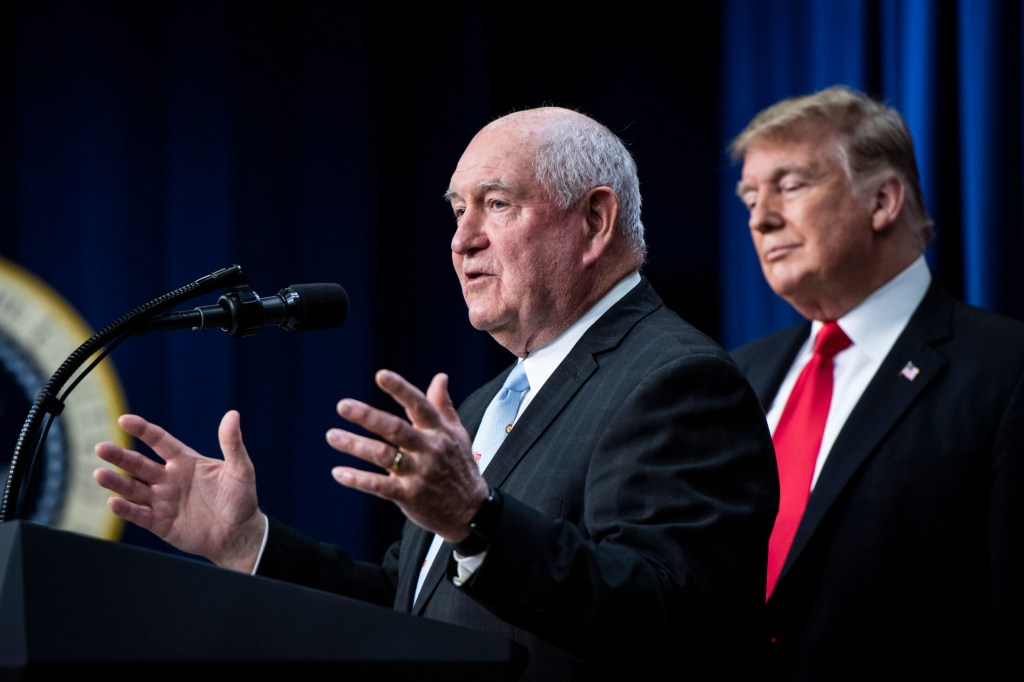Agriculture Secretary Sonny Perdue went to the heart of dairy country this week and told farmers just what they’d been fearing — that the future was grim for small family farms, and that no help from the federal government was coming.
“In America, the big get bigger and the small go out,” Perdue said during an appearance at the World Dairy Expo in Madison, Wisconsin. “I don’t think in America we, for any small business, we have a guaranteed income or a guaranteed probability of survival.”
It was a stunning thing to say in a state that has lost more than 1,500 dairy farms in the last three years, and where hundreds more are struggling to pay the bills in the face of mounting troubles for family farms.
And it was a clear sign that farm policy under President Donald Trump will continue to favor large industrial farms over smaller ones, to the detriment of our food system and farming communities everywhere, including Maine.
“Five years of plunging farm prices, increasing bankruptcies and climbing suicide rates were not discussed by Perdue,” Jim Goodman, board president of the National Family Farm Coalition told Common Dreams. “His message to them was basically, stop whining, your demise is inevitable.”
Of course, it is only inevitable because federal agriculture policies largely do not value small family farms. Instead, policies lean toward bigger farms, which has led to conglomeration in farming. In turn, that has moved decision-making farther from the land, and put control of the food system in fewer and fewer hands. It has hurt communities that for a long time have been defined by agriculture.
Since 1995, the federal government has awarded more than $322 billion in farm subsidies; 75 percent of those subsidies have gone to just 10 percent of farms.
The Trump administration has only pushed the scales further in favor of large farms. They’ve sought to cut regulations that protect land and water that have been long opposed by industrial farming entities. Those cuts don’t help other farms — as Maine farmers know, smaller farming operations are generally good stewards of the land just as a matter of course.
And while the Trump administration’s trade war with China was killing small operations, aid meant to counteract trade troubles was flowing to the biggest farms. Of the first $8.4 billion paid out by the administration, more than half went to just one-tenth of recipients, according to a report from the Environmental Working Group.
Those payments were tied to acreage and favored farms that were corporations or partnerships. And while one could argue that the bulk of payments should go to the biggest farms, there is no denying that the payments show just how concentrated agriculture has become.
Such concentration leads to more environmental degradation, less variation in the food supply, and more severe violations of animal welfare. That’s bad news not only for family farms but for all of us.
Industrial farming will always play the largest role in feeding the nation and driving the agriculture economy.
But family farms also have a role — one that includes but goes beyond filling the food system. When they struggle, officials like Perdue who have the power to help family farms owe them more than a half-hearted shrug.
Send questions/comments to the editors.



Comments are no longer available on this story